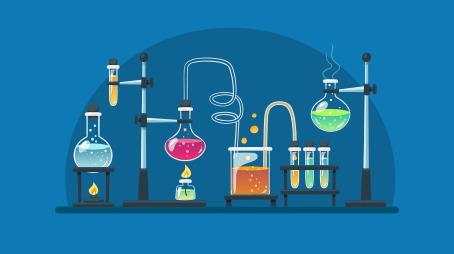Engineering is one of the most fascinating and challenging disciplines at the same time. Since time memorial, the sphere has attracted individuals with innovative capability, good creativity, and zeal to create solutions that simplify life. Engineers put forth their untiring efforts to boost development in different areas in this changing world. If you think you have it in you to become a change-maker and create revolutionizing products, then you should choose the field of engineering.
However, no one is born with the knowledge of principles, laws, concepts, and fundamentals governing the field of engineering. You need to acquire knowledge and requisite skills to shine in the sphere. For that, you need to pursue an engineering course at the best college. One such college is MIT Academy of Engineering, which is considered among the top engineering colleges in Pune and India.
MIT, Pune - Top Engineering Colleges in India
India is a well-known educational hub in the world. The country is flooded with arrays of institutes, schools, and universities offering best-in-class education. Moreover, there are educational institutions of international repute in India like IITs, IIMs, NITs, AIIMS, and JNU, to name a few. In addition to these big names, many other new institutes are gradually gaining significance in the country.
MIT Academy Of Engineering (MITAOE) is one of such institutes that is becoming popular among the students bestowed to its top-notch quality education and decent track record. MIT AOE is an engineering college that offers best in class B. Tech and M.Tech courses to train engineering aspirants. In fact, within a short period of its inception, its name is considered among the top engineering colleges in India.
MIT Pune - Top Engineering Colleges in Maharashtra
Established in 1999, MIT AOE Pune is among the top engineering colleges in Maharashtra, offering graduation and post-graduation courses in engineering in various specializations. It is backed by MIT Pune, which is a reputed educational institution in Maharashtra. It is a part of the MIT Group of Institutions, which is known as a center of academic excellence. The institution, through its best-in-class education, adds another feather to the cap of MIT Pune Group.
MIT AOE has been bestowed with the title of 'Academic Autonomy' by the UGC. Furthermore, NAAC has accredited it with an 'A' grade status. Its pedagogical practices, highly qualified faculty members, research environment, laboratories, and robust infrastructure cater to the global standards. Furthermore, its excellence in academics and research has helped it to gain NBA Accreditation.
Engineering Institute in Pune
MIT AOE is situated in Pune, which is colloquially known as the 'Oxford of the East. Taking forward the city's legacy, MIT Academy of Engineering is another educational institute that offers high-quality education and a safe learning environment. It is one of the top engineering colleges in Pune. The college offers B.Tech and M.Tech courses in Electrical and Electronics Engineering, Mechanical Engineering, Civil Engineering, Computer Science Engineering(CSE), Information Technology(IT), and Chemical Engineering.
The learning environment in this institute has its foundation in the learning-centered approach, effective implementation of learning strategies, and 'student-teacher interaction.' Quality of education in this college offers the best environment for pursuing higher studies and research. It allows individuals to enhance their technical skills, communication skills, and overall well-being.
In a nutshell, the overall development of students and making them industry-ready is the core objective of MIT Pune's Academy of Engineering. This makes MIT AoE feature among the best engineering institutes in Pune. So, if you are an engineering aspirant looking for the best college in Pune that will train you perfectly to enter the field of engineering, then you should bank on MITAOE.
MIT Academy of Engineering (MITAOE) is a top Autonomous M.Tech College in Pune.
MITAOE is well aware of the sanctity of the engineering profession, and so, the Institute has risen the ranks to become the best college of engineering in Pune.
Join the Best Engineering College in India
The stream of Engineering involves a series of endless innovations, and so does our college nurtures the same. Hence, this degree got a good start. MITAOE, the best engineering college in Pune, has been committed to helping students grow. Over the years, MITAOE has laid a solid foundation for education on a global scale. MITAOE Institute offers full-time, undergraduate, and postgraduate programs in engineering and computer science. Through diligent work, it has become one of the Best Engineering Colleges in India.
MITAOE - Best Autonomous Engineering Colleges in Pune
MIT Academy of Engineering (MITAOE), is a part of the prestigious MIT Group in Pune, offers seven full-time bachelor's degrees in Computer Engineering, Chemical, Civil, Electronics, Mechanical Engineering, IT, and ENTC fields. MITAOE also offers three full-time M.Tech courses in Mechanical, Computer Science, and Electronics Engineering.
As one of the best autonomous engineering colleges in Pune, MITAOE has an entirely different atmosphere from academic life. The institute attaches great importance to students' extracurricular activities and does not allow students to channel their minds into just academics. The institute has multiple clubs dedicated to dance, music, drama, competitions, etc., and it also organizes various events for clubs to participate in and showcase their talents. As the campus is equipped with exciting facilities, students are often spotted making memories with friends. The students continue to enjoy their hostels and enjoy their college life to the fullest!
MITAOE serves as the Top B.Tech Colleges in Pune
MITAOE being one of the Top BTech/BE colleges in Pune holds an autonomous curriculum with the core vision of flexibility in learning,industry-specific curriculum design, and overall development of the students.
Provide flexibility by offering different elective courses
These elective courses are designed to ensure that students learn and use the latest technology in the industry. The boundaries of different disciplines are rapidly shrinking, which is inevitable to possess knowledge of various fields. Open elective courses provide students with excellent choices and help to acquire multi-disciplinary knowledge.
In addition to the core areas of engineering, B.Tech, and M.Tech also enable candidates to work in information technology, data analysis, consulting, and management. With excellent technical skills, engineers can also apply for jobs in various public, private, and government companies. MITAOE is the most trusted BTech college in Pune because the institute provides students with comprehensive programs and certified courses.
Chemical Engineering Colleges in Pune
Among the leading private colleges of engineering in Pune, MITAOE, School of Engineering is renowned for its excellent academics and infrastructure. The Autonomous institute, MITAOE, shapes its students into assets in the era of globalization.
MITAOE is also renowned as one of the best Chemical Engineering Colleges in Pune, Maharashtra. The modern infrastructure of this prestigious institute offers some of the best chemical engineering courses in Pune, meeting international standards. MITAOE provides convenient facilities such as separate accommodation for men and women, well-equipped classrooms, meeting rooms, and spacious playgrounds. The Institute's Central Library possesses many sources of books and other e-resources. In addition, the library also provides various activities: orientations, competitions, guest lectures, works, and poster presentations.
Why Choose MITAOE - Top Engineering Colleges in Pune for Computer Science
MITAOE, School of Computer Engineering & Technology, is one of the top Engineering Colleges in Pune for Computer Science and a top-ranked institute of software engineering that aims to provide students with technical knowledge and prepare them for a healthier world. With Global Excellence in technology, the department focuses on educating the students to fulfill their dreams. The institute promises a successful career through successful placement drives. MITAOE, being one of the best Software Engineering Colleges in Pune, believes in scaling academic achievement by serving the country.
Career after graduating from Top Engineering Colleges in Pune for Computer Science
When you consider potential opportunities after graduating with a B.Tech Degree in computer science from MITAOE, you can choose from the following job profiles:
- Big Data Engineer - For young computer scientists, this is a promising career path. Big Data Engineers are responsible for creating, testing, and maintaining a large and scalable data ecosystem for the enterprise.
- Machine Learning Engineer - Specializes in building and designing intelligent machines and systems that can perform human-like tasks with little or no human supervision.
- Blockchain Developer - Gain experience in blockchain technology, and create high-level interfaces, functions, and architectures for blockchain systems.
- Data Scientist - The job of a Data Scientist is a critical job profile. If creating value from complex data could work for you, then this is your dream career path.
More importantly, the opportunities in B.Tech in computer Science are endless, but choosing the best engineering colleges in India will increase the chances of achieving the career you want the most.
Taking a step towards Global Development through Excellence
MITAOE is among the Best Civil Engineering Colleges in Pune, Maharashtra. The civil engineering curriculum encourages students towards global development through excellence and knowledge.
Established in 2014, the Department of Civil Engineering department currently offers undergraduate courses in civil engineering and enrolls 60 students each year. The institute encourages students to think creatively, plan, design, build and maintain infrastructure innovatively. The curriculum model provides exposure to subjects like Structural Engineering, Hydraulics and Water Resources Engineering, Geotechnical Engineering, Transportation Engineering, Environmental Engineering, etc. In addition, the most advanced laboratory enables students to have a deep understanding of structural engineering concepts.
MITAOE offers B.Tech and M.Tech programs for engineers engaged in mechanical engineering and related fields. The institute is one of the top Mechanical Engineering Colleges in Pune, dedicated to cultivating engineers with strong skills and strong quality awareness. That is why we at MITAOE provide our students with a platform to learn the basics to advance Engineering concepts from our industry experts. If you are interested in learning about all aspects of Mechanical Engineering, you should look forward to MITAOE comprehensive courses.




